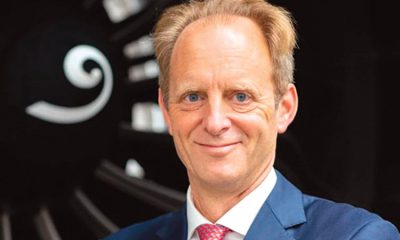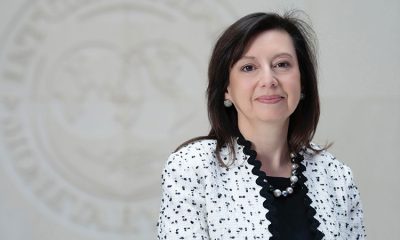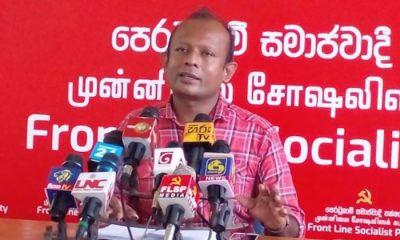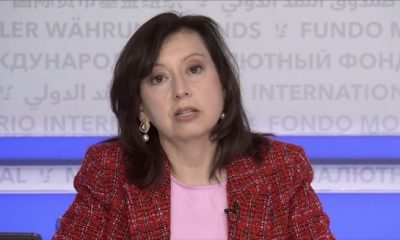News
IMF wants donor coordination, for countries like Sri Lanka, expanded

The IMF is looking for ways to expand donor coordination to middle-income countries, such as Sri Lanka, IMF Managing Director Kristalina Georgieva said on Thursday in Washington, DC.The IMF is also pressing for a more effective debt resolution mechanism, she said. Georgieva added that they want the G20 Common Framework to become more predictable, with clear guidelines and equality of treatment for all creditors, public and private.
“We are also looking for ways to expand that kind of donor coordination to middle-income countries, such as Sri Lanka,” she said.
The IMF Managing Director said for countries suffering from the food crisis, they have expeditiously opened emergency financing—the Food Shock Window—to provide rapid financing for urgent needs.Given below are excerpts of her statement, “We are appealing to policymakers to act with a sense of urgency now, and to act together. We see very clear areas where we can do better, even in this more complex environment.
“First, bring inflation down. We know that rising interest rates come at a cost to growth. But we also know that not tightening enough, to put a leash on inflation, would mean interest rates staying higher for longer, resulting in even more harm to growth and people. For central banks, this means taking decisive action when necessary, and communicating as clearly as they can.
“Second, act now to put in place responsible fiscal policy. We must prioritize protecting vulnerable households and businesses. But we have to do that at a time when fiscal buffers are exhausted because of the pandemic and levels of debt are very high. The obvious conclusion is that policy measures need to be temporary and well-targeted. Steer away from across-the-board fiscal support that is neither effective nor affordable.
“If we are to help people and fight inflation, we must ensure that fiscal and monetary policies go hand in hand. When monetary policy hits the brakes, fiscal policy should not step on the accelerator—that would make for a very dangerous ride.
“Third, act now to safeguard financial stability, particularly as we see rising financial sector risks. Macroprudential policies need to be even more vigilant and proactively address pockets of vulnerability.
In this environment, we also must support vulnerable emerging markets and developing countries. It is tough for everybody, but it is even tougher for countries that are now being hit by a stronger dollar, high borrowing costs, and capital outflows—a triple blow that is particularly heavy for countries that are under a high level of debt. We are focusing on debt this week, especially for low-income countries where over 60% are at or near debt distress.”
News
PM returns to the island

Prime Munister Dr Harini Amarasuriya returned to the island this (23rd) morning after attending the World Economic Forum in Davos, Switzerland,
News
Navy divers restore sluice gate of Bomburuella Reservoir
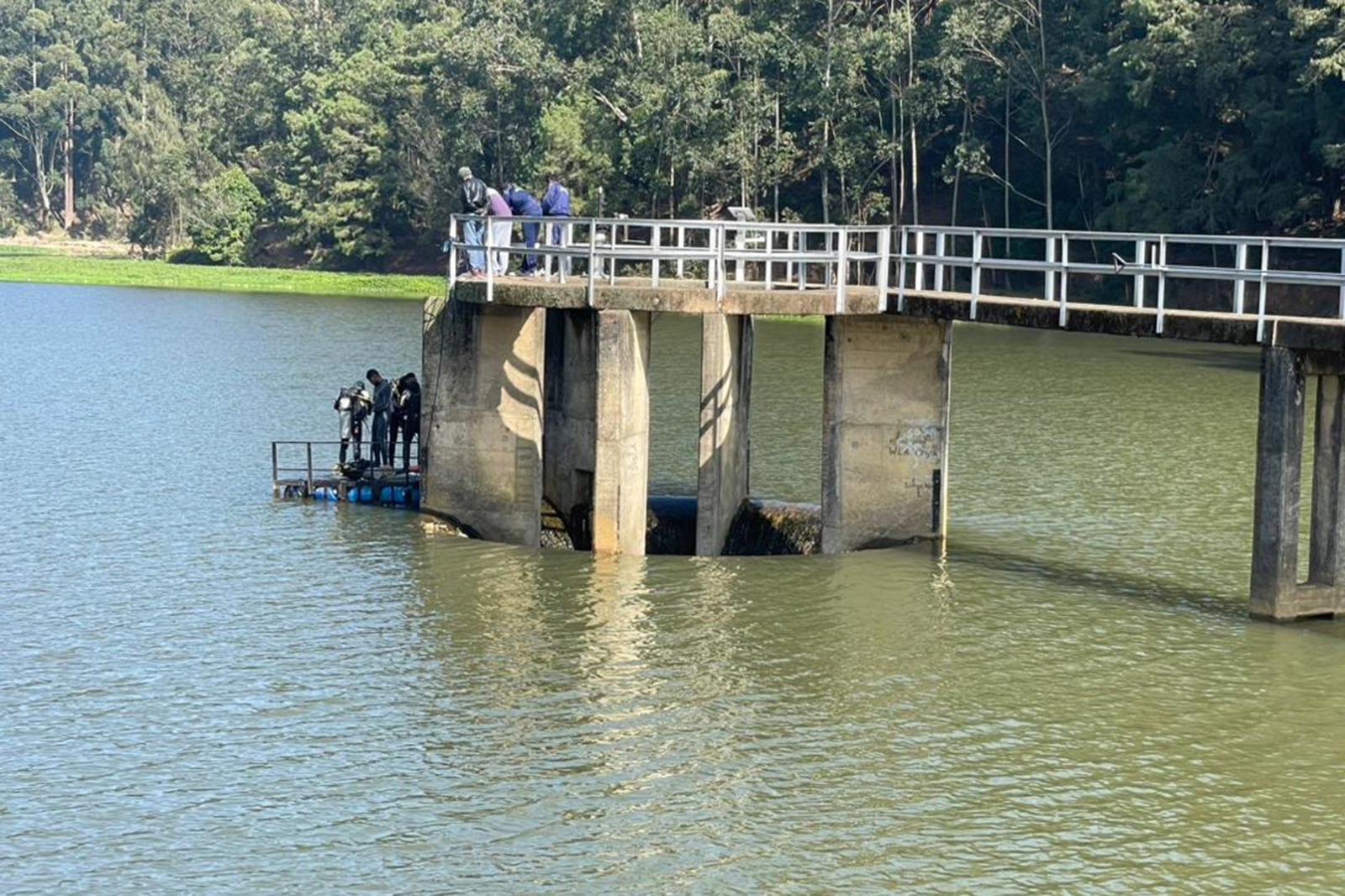
The Sri Lanka Navy successfully conducted a diving operation on 19 Jan 26 to inspect and restore the sluice gate of the Bomburuella Reservoir.
Acting on a request from the Department of Irrigation, the Sri Lanka Navy deployed a specialized diving team from the Western Naval Command, for the urgent requirement.
Through concerted effort, the Navy divers successfully cleared accumulated debris, including a significant quantity of wooden fragments, which had impeded the sluice gate mechanism.
News
PM holds High-Level meetings with EU, UNDP, and corporate leadership at World Economic Forum
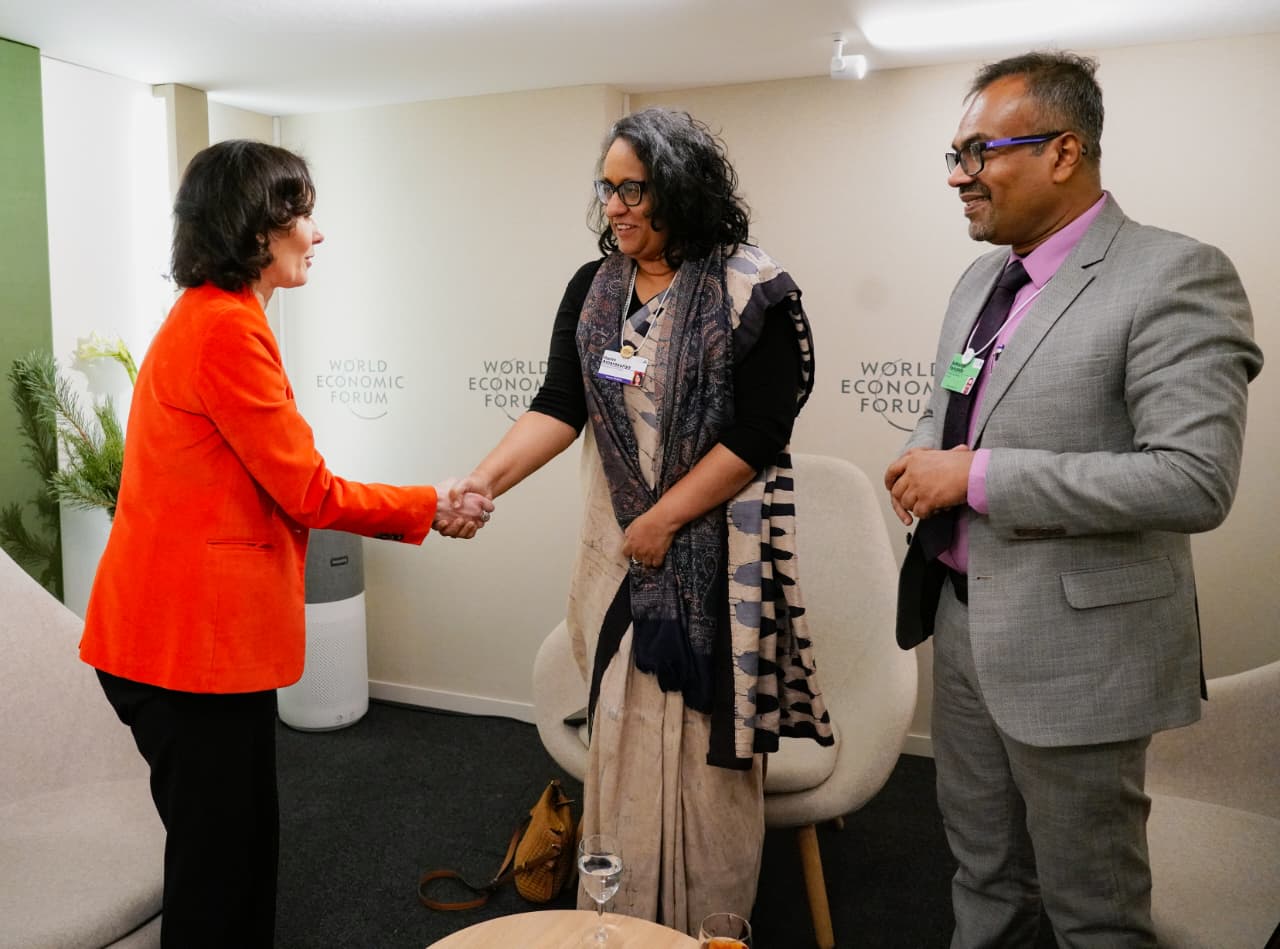
Prime Minister Dr. Harini Amarasuriya held a series of high-level bilateral meetings on Wednesday [January 21] on the sidelines of the World Economic Forum in Davos, Switzerland, engaging with representatives of the European Union, the United Nations Development Programme, and the global private sector.
The Prime Minister met with Hadja Lahbib, European Commissioner for Preparedness and Crisis Management. During the meeting, she expressed Sri Lanka’s appreciation for the support extended by the European Union and its member states following Cyclone Ditwa. The Prime Minister also briefed the Commissioner on the key findings of the World Bank’s GRADE report and requested continued EU support for Sri Lanka’s development and recovery efforts.
Prime Minister Amarasuriya also met with Alexander De Croo, representing the United Nations Development Programme. She expressed appreciation for the longstanding partnership between Sri Lanka and the United Nations and acknowledged the UN’s support in flood relief and livelihood assistance. The Prime Minister noted that, following the mandate received at the parliamentary election, the government is focused on meeting public expectations through national rebuilding grounded in public trust and good governance. She further reaffirmed the Government of Sri Lanka’s commitment to strengthening social protection systems and safeguarding vulnerable communities.
In addition, the Prime Minister met with Robert M. Uggla, Chairman of A.P. Moller Holding. The discussion focused on engagement with the private sector and potential areas of collaboration.
These meetings reflected Sri Lanka’s continued engagement with international partners and global stakeholders to support recovery, development, and long-term economic stability.
[Prime Minister’s Media Division]
-

 Editorial6 days ago
Editorial6 days agoIllusory rule of law
-

 News7 days ago
News7 days agoUNDP’s assessment confirms widespread economic fallout from Cyclone Ditwah
-

 Editorial7 days ago
Editorial7 days agoCrime and cops
-

 Features6 days ago
Features6 days agoDaydreams on a winter’s day
-

 Features6 days ago
Features6 days agoSurprise move of both the Minister and myself from Agriculture to Education
-

 Features5 days ago
Features5 days agoExtended mind thesis:A Buddhist perspective
-

 Features6 days ago
Features6 days agoThe Story of Furniture in Sri Lanka
-
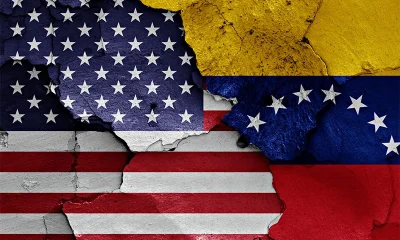
 Opinion4 days ago
Opinion4 days agoAmerican rulers’ hatred for Venezuela and its leaders




